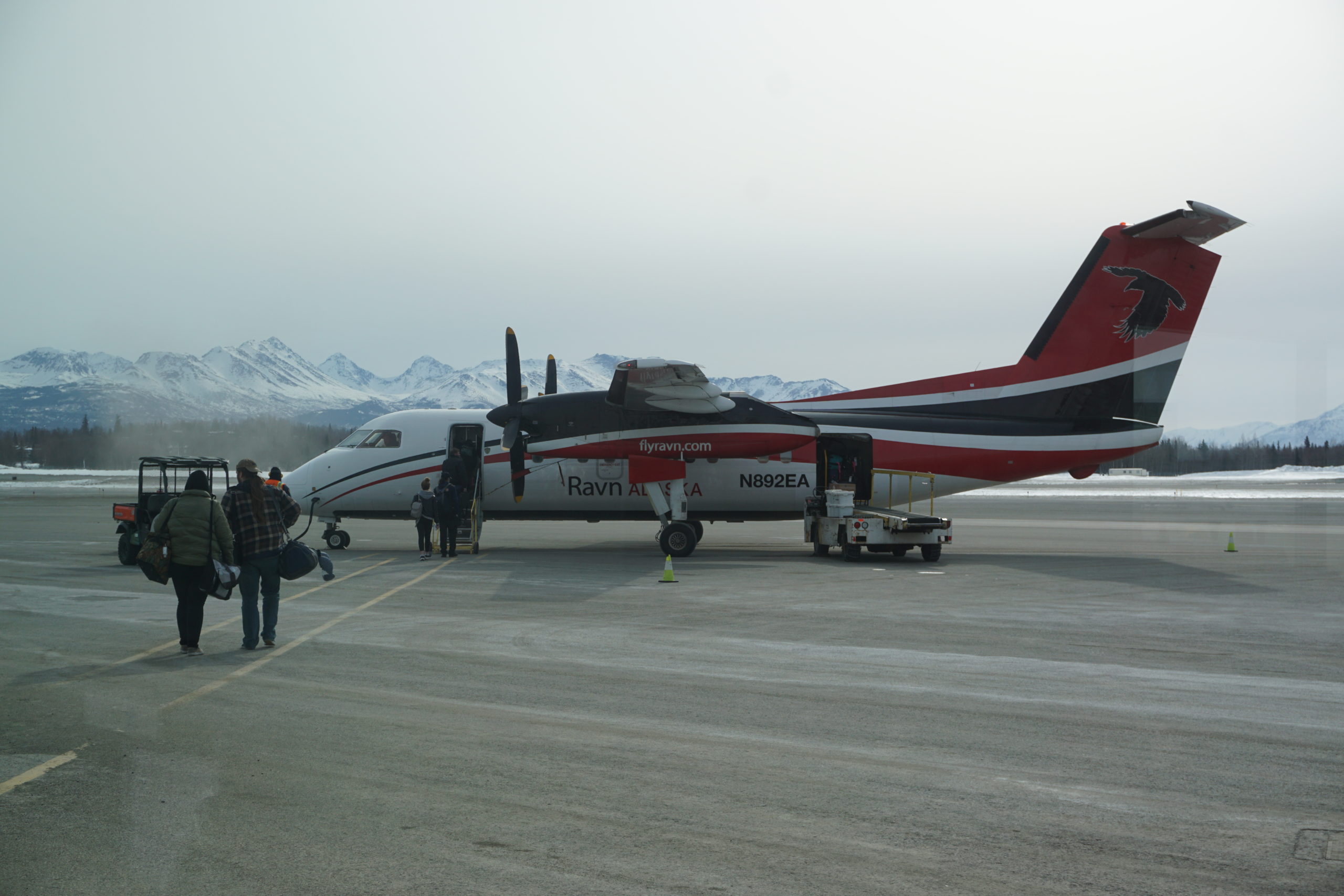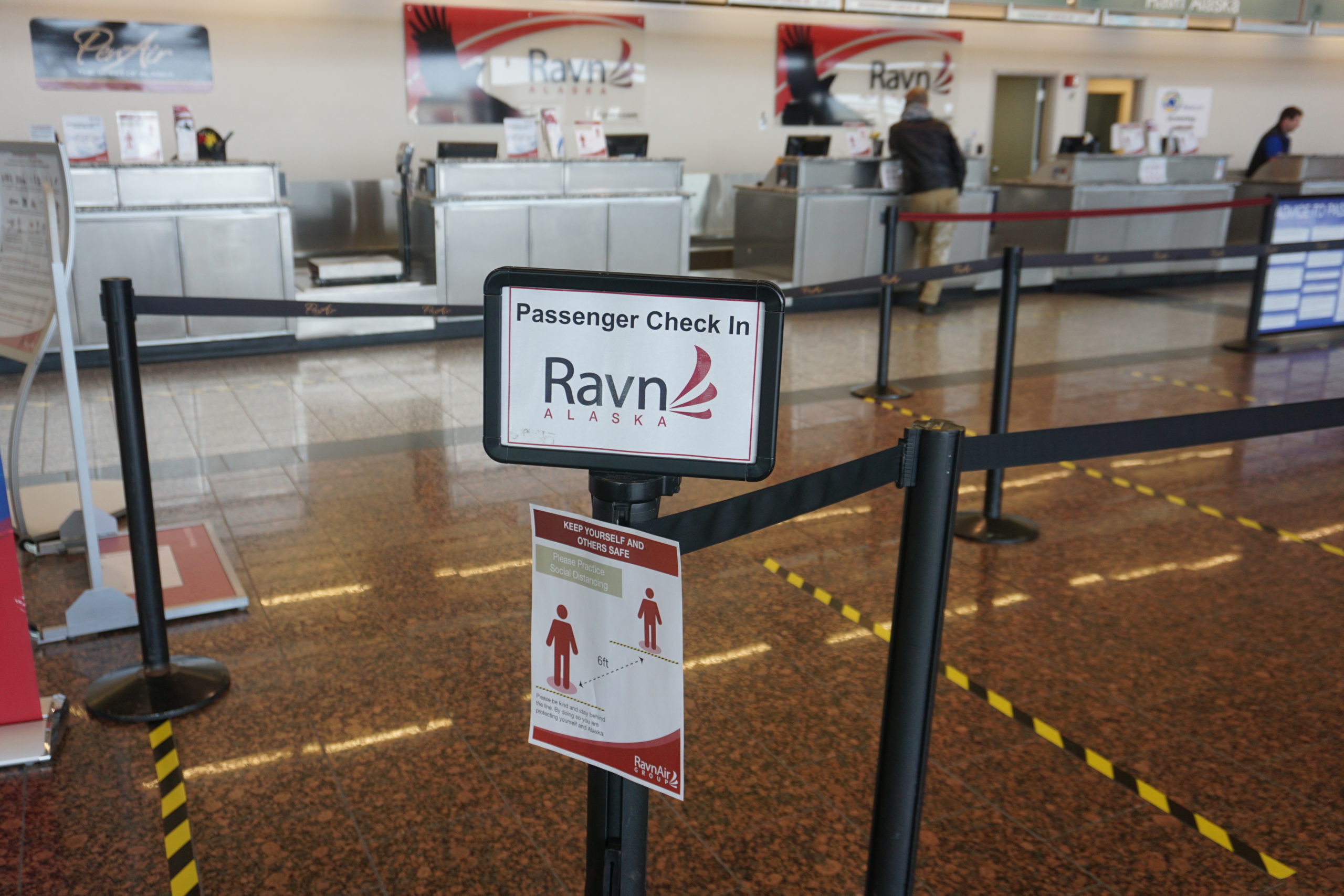Communities scramble after Alaska’s main rural air carrier grounds nearly all flights
Ravn Air, which served more than 100 communities across Alaska, abruptly halted flights to most of them — including many with no other transportation links.

Alaska’s main rural air carrier has abruptly canceled 90 percent of its flight operations, leaving remote villages and hub communities throughout the Arctic and much of the rest of the state with uncertainty about future cargo, mail and passenger service.
For many remote communities — which are not located on the state’s sparse road system and have limited or no shipping links — air carriers are the main connection to the rest of the world.
Ravn Air, which serves rural communities in most of Alaska, made the announcement on Thursday. The company said that revenues have dropped by 90 percent because of the coronavirus pandemic. The company said that “it has been forced to take further actions to drastically cut costs.”
Among those that had to scramble for replacement deliveries was the U.S. Postal Service, Ravn was the carrier that brought mail to scores of communities. Ravn normally flies to more than 100 destinations in Alaska.
The Postal Service learned about the flight cancellations the same day that the public did, said spokesman David Rupert. He said replacement carriers have been found for most of the sites.
In a statement, the Postal Service said it was working with other companies to find a solution.
“We’re currently evaluating our transportation options to ensure a continuity of mail operations to Alaska’s communities,” Alaska District Manager Ron Haberman said in the statement, issued Thursday. “We understand the importance of mail to these communities and are quickly working with other providers to fill the gap.”

The abrupt cancelation drew a response from Gov. Mike Dunleavy, who on March 27 imposed a ban on non-essential passenger travel. Dunleavy said his administration was working with the aviation industry to ensure that passenger, mail and freight service is maintained. “The importance of the supply chain to rural Alaska communities is a priority for my administration,” he said in a statement Thursday.
Among those that have secured alternative service is the North Slope Borough.
The borough announced late Thursday that it had reached a quick agreement with a different rural carrier that specializes in cargo service, Ryan Air, to make flights in that northernmost region of the state.
“We understand the hardship Alaska businesses like Ravn Air are currently facing, and we appreciate their willingness to work with Ryan Air regarding the utilization of their existing facilities on the North Slope,” North Slope Borough Mayor Harry Brower said in a statement. “Details on facilities use and routes are still being worked out but our hope is to have Ryan Air operating in our communities this weekend.”
The borough’s search and rescue and public works departments will also be available to pitch in if emergency deliveries of medicine or supplies are needed, Brower said in the statement.
Most passenger air travel within the state has been grounded, and rural communities — which have limited medical resources and a history of devastation from past epidemics — have imposed strict limits on travel, including some outright travel bans.
However, cargo flights continue to be necessary, and even those communities with near-total travel bans are allowing medical personnel and medical patients to fly in and out.
Ravn has grown to dominate commercial aviation in rural Alaska in recent years, with the purchase or merger of several flying services beginning in 2008. During that period, the company has dogged by safety concerns.
“Ravn companies have been involved in 21 accidents and incidents resulting in 15 fatalities and multiple injuries,” reports The Bristol Bay Times.
Ravn said it will continue to fly to 10 communities — Kenai, Homer, Valdez in the Gulf of Alaska Region; King Salmon and Dillingham in the Bristol Bay region; St. Paul, an Aleut community in the Pribilof Islands; the southwestern Alaska hub of Bethel; the Yukon River villages of Aniak and, St. Marys, the Interior community of McGrath and the Bering Sea community of Unalakleet.
Those are designated Essential Air Service communities, under a U.S. Department of Transportation program that subsidizes air operations.
Of Ravn’s 30 aircraft, only three will operate to serve those communities, the company said in its statement.